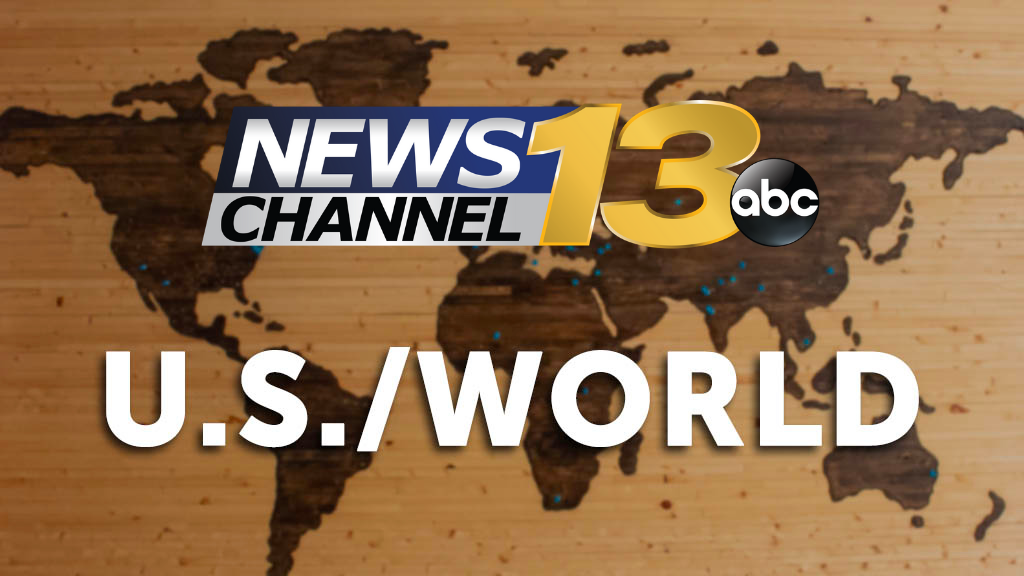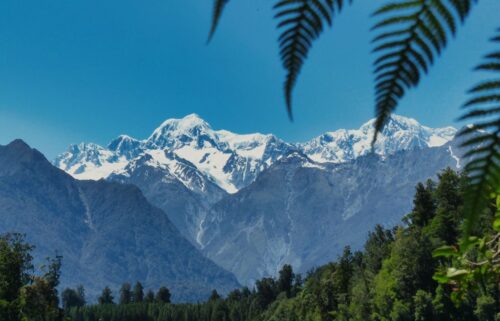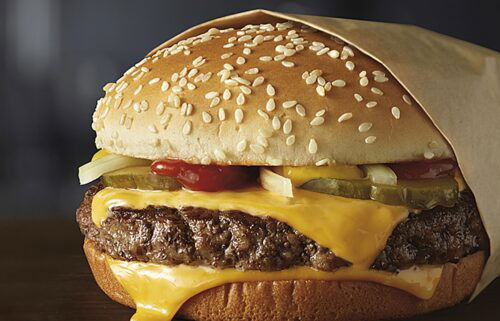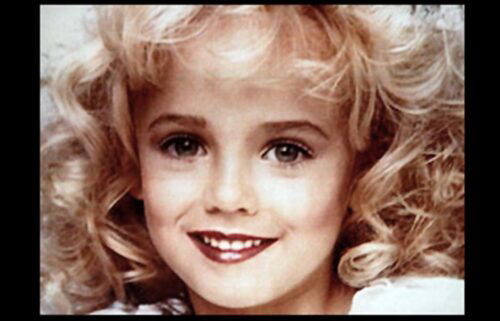At Cannes, Polish filmmaker’s ‘In the Rearview’ spotlights Ukrainians escaping war

By VANESSA GERA
Associated Press
WARSAW, Poland (AP) — When Polish filmmaker Maciek Hamela first began evacuating Ukrainians fleeing Russia’s war on their country, he wasn’t intending to make a film. He was one of the many Poles extending humanitarian aid to neighbors under attack, and had turned down an offer to film a television investigation there.
But the reflections of the people he was transporting to safety in his van were so poignant that soon he began filming them. He asked a friend who is a director of photography to help him film — and drive — and directed his camera squarely back at his passengers as they traversed their war-scarred land.
The result is “In the Rearview,” a documentary film being shown at the Cannes film festival in France as part of a parallel program devoted to independent cinema. It is not in competition.
A Polish-French co-production, it takes place almost entirely in Hamela’s van, with the camera capturing the harrowed passengers, one group after another in countless journeys made between March and November of 2022.
The result is a composite portrait of men, women and children traversing a devastated landscape of bombed-out buildings and past checkpoints with dangerous detours caused by mines and collapsed bridges and roads.
The 84-minute film shows a little girl so traumatized that she stopped speaking. There is a Congolese woman who was so badly injured that she has undergone 18 operations since Hamela evacuated her. A mother with two kids who pass by the Dnieper River; believing it to be the sea, the kids ask their mother if she will take them there after the war.
“The way we set up the film was to see the reflection of the war in these very small details of ordinary life and the life that we all have,” Hamela told The Associated Press in an interview in Warsaw before he flew to Cannes.
There is also some humor, with one woman commenting ironically that she had always wanted to travel. A woman escaping with her cat saying it needed a bathroom break.
In order not to exploit the people he was helping, Hamela told them a camera was in a car before he picked them up. And they only signed forms giving him permission to use the footage after they had arrived safely at their destinations so they would never feel that was a condition for his help.
“In the Rearview” also documents one of the many Polish efforts to help Ukraine. When Russia launched its all-out invasion of Ukraine on Feb. 24, 2022, there was a massive grassroots effort to help across Poland, with regular people taking time off work to travel to the border with Ukraine to distribute food. Some picked up strangers and took them to shelters or even into their own homes.
Hamela began on day one to raise money for the Ukrainian army. By day three he had bought a van to transport Ukrainians from the Polish border and convinced his father to open his beloved summer home to strangers.
Soon Hamela heard from a friend of people in eastern Ukraine needing to be rescued, and he began driving to the front lines of the war to pick them up. Some emerged from basements where they had been sheltering in terror.
When the war began, Hamela had been working on a documentary about a crisis at Poland’s border with Belarus. Large numbers of migrants from the Middle East and Africa had been trying to cross that border in 2021. Poland and other European Union countries viewed that as an effort organized by Russia’s ally Belarus to destabilize Poland and other EU countries.
Poland reacted by building a wall to stop the migrants, resulting in some dying in the forests and bogs of the area.
The war in Ukraine led Hamela to drop that project, which was to have focused on the indifference in some Polish border communities to the plights of the migrants and refugees.
Having observed both crises up close, he sees a connection.
“This is my personal take on this, but I really think it was meant to antagonize Poles against all refugees in preparation for the war with Ukraine,” he said.
Hamela, who is now 40, was also active in supporting Ukrainians involved in the pro-democracy Maidan Revolution of 2014, which led to Russia’s initial incursions into Ukraine.
He says the world shown in his documentary could hardly be further from the glamorous world of Cannes, and he hopes it will remind people of how high the stakes are in Ukraine.
“We’re trying to use this coverage to remind everybody that the war is still going on and lives need saving. And Ukraine is not going to win it without our help,” he said. “So that’s the ultimate task with this film.”



